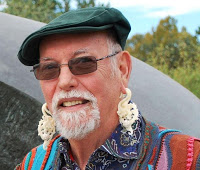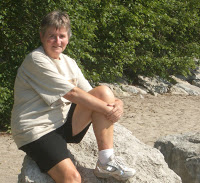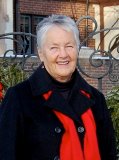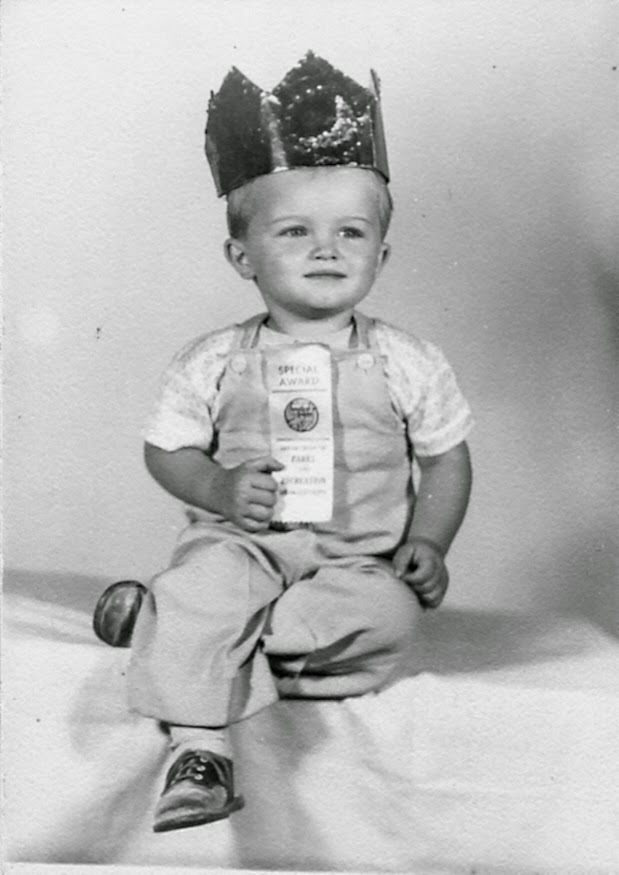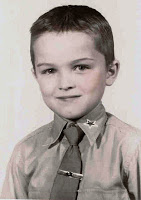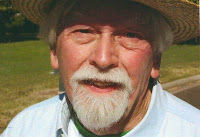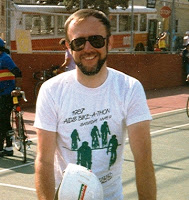Telling Your Story theme of the day: Reading
Plot Summary of The Shooters (2008) by W. E. B. Griffi,
Genre: International spy thriller
Style of writing: soap opera, episodes based on quickly shifting scenes.
Carlos Castillo was an officer in the Department of Homeland Security. Then there was a Presidential Finding that authorized the setting up of another agency, the Office of Organizational Analysis in reaction to the assassination of some important ambassadors in Uruguay, Paraguay and Argentina, one of whom was Ambassador Jack Masteson. Carlos Castillo’s middle name is Guillermo. He is the son of Jorge2 Castillo who, when he was stationed in Germany in the U. S. Army, had sex with a German woman who later became pregnant. J2C did not know she was pregnant and was shipped off to Vietnam where he died in combat.
12 years passed and the unnamed mother of Carlos learned she was soon going to die of pancreatic cancer. She goes to local army base and inquires about Jorge2 Castillo’s whereabouts. She learns he died in combat in Vietnam. For his first twelve years Carlos Guillermo3 Castillo was named Karl Wilhelm3 zu und von Gossinger. In other words, he was a German boy growing up in Germany in an impoverished German aristocratic family. Even when he was older, he was blond and fair-skinned, Nordic. Still he was half “Texican,” the grandson of Juan (Don)1 Castillo and Doña Alicia Castillo. A “Texican” means a native of Texas whose ancestry is Mexican especially those who were living in Texas when Texas was still part of Mexico.
Don Fernando1 Castillo was wealthy and owned a Learjet, that is, he was also an airplane pilot.
When Karl Wilhelm’s mother contacted this elderly Texican couple, Doña Alicia flew to Germany and met her grandson whose existence she did know of until then. Karl’s mother was bedridden. Karl’s impoverished German family could not really help him. Of course, Karl was technically illegitimate and was a minor embarrassment. Dona Alicia took right over, took good care of Karl and dying mother. Once mother died, Doña Alicia brought Karl back to Texas where he was of course renamed Carlos Guillermo3 Castillo and where he spent the rest of his childhood, that is, in San Antonio, Texas.
As a result of his childhood in Germany and his subsequent service in U. S. military, CG3C speaks English, German but also Hungarian. As an adult, CG3C worked in the American military, he was a Gulfstream airplane pilot, and all his colleagues called him Charlie. Many other characters in the novel have first name Charles or Charlie. So when reader reads Charlie said this or that, he has to be aware of which Charlie is being referenced (which can get complicated). One of CG3C’s colleagues, Alfredo Munz, is German, so he calls CG3C “Karl”. Other of his colleagues call him “Ace.” Reader gets confused.
Before entering military service in the U. S. Army, CG3C went to West Point as a cadet. He and a fellow cadet, named Randolph Richardson, let’s call him RRIII, frequently played dirty tricks on one another. This led to a serious dispute between the two that resulted in a hearing before the Cadet Honor System Tribunal. RRIII lost his case but never forgave CG3C and his cohorts. And vice versa.
Later CG3C went to Fort Rucker, Alabama, to learn how to fly an updated version of the Gulfstream super airplane and again met RRIII and his fiancée, Bethany2 Wilson, daughter of Harry Wilson, deputy commander at Fort Rucker, Harry Wilson had an important connection with CG3C and that was that he was copilot in the Vietnam War with CG3C’s father, Jorge2 Castillo. The name of Bethany2 Wilson’s mother was Bethany1 Wilson. Both women called themselves “Beth” just to confuse the poor reader even further. B2W and CG3C were of course at odds with one another since her future husband and CG3C would never really get along with each other and she sided with her future husband, RRIII. After a while, however, CG3C and his colleague, TomPrentiss, recounted his biography to B2W and she was so impressed, let her guard down, and she started getting attracted physically to CG3C and eventually had sex with him. They were both of course hush-hush about their romantic interlude, their tryst.
Once the Office of Organizational Analysis was set up, CG3C was sent to Uruguay to protect the Masterson family. Jack Masterson a U. S. ambassador to Uruguay was assassinated in a massacre that took place on the Estancia Shangri La, located in central Uruguay and owned originally by Jean-Phillippe Lorimer, the son of another retired Ambassador who later on in the novel went down to Uruguay to live in his late son’s estate, estancia, despite OAA’s opposition. His son had been assassinated. Presumably, all these assassinations were committed by drug lords.
The novel does not discuss specifically how CG3C was held accountable for his technically unsuccessful task of protecting the Masterson family. He was sitting with his innumerable colleagues in a safe house, a mansion in the Pilar suburb of Buenos Aires, called Nuestra Pequeña Casa. It had originally been purchased and set up by two CIA agents, Paul and Susanna Sieno. While he and his colleagues were sitting in the quincho (a sort of fenced in patio), assuming they were operating in complete secrecy, CG3C’s dog Max detects the presence of an intruder, Colonel Jacob (Jake) Torine, a black U. S. Air Force Colonel who tells them he and a significant number of local U. S. Air Force personnel inferred why and how CG3C’s “secret” operation was all about. CG3C and company were horrified that their so-called secret operation was virtually public knowledge. A bit later, Colonel Jake Torine was inducted as another officer of OOA. Torine was actually motivated to ask for CG3C’s assistance in preventing harassment of his fellow USAF personnel by drug lords.
Once Torine showed them that their operation was not all that secret, they had to return to another safe house in Alexandria, VA. Once things cooled off, they returned to Nuestra Pequeña Casa. CG3C and company, that is, the Office of Organizational Analysis, were sent back to Argentina, to Nuestra Pequeña Casa, safe house, to retrieve Byron J.3 Timmons, the grandson of Byron Timmons Sr. who was a close friend of the unnamed POTUS, and POTUS owed him a favor. Byron Timmons Sr. was a retired chief of police of the Chicago Police Department. BJ3T had been kidnapped by local drug lords, tied up in a secret location with two other Uruguayan anti-drug police officers.
Until recently, the drug lords never killed drug enforcement or any other law enforcement officers in Argentina, Uruguay and Paraguay. BJ3T with two anti-drug trafficking Uruguayan police officers were turned by their kidnappers into drug addicts themselves. The three were tied up with hands over head to a cable above their heads and were injected intraveneously at regular intervals with heroïne.
During the course of the novel, after much hopping from air base to air base, CG3C returns to Fort Rucker, Alabama, and, in order to observe the damage wrought by Hurricane Katrina along the gulf coast, jumps in an airplane, accompanied by RRIV, son of RRIII, and RRIII’s father-in-law, Commander Harry1 Wilson. They fly east first along the southern coast of Alabama then the Florida pan-handle coast. CG3C even lets the 8 year old RR-IV pilot the airplane for a few minutes, of course under his close supervision. One of CG3C’s colleagues takes a picture of this outing on one of his cell phone photography devices.
On this reconnaissance flight were CG3C, RR-IV, Niedermeyer (one of CG3C’s colleagues), Commander Harry Wilson, RR-IV’s maternal grandfather. Later Niedermeyer shows the photos to CG3C, and RR-IV uncannily looks a lot like CG3C. Coup de foudre, CG3C realizes he is RR-IV’s real father, and RRIII does not even know or suspect the truth. If he did know or find out, then what? CG3C writes a report on what he found out in an encrypted message to himself on his laptop. His grandmother, his abuela, Doña Alicia Castillo nagged him about not having a family. Little does she know she has a great grandson. RR-IV is of course the result of CG3C’s romantic interlude with Beth2 Wilson, and Commander Harry1 Wilson is not aware either of his grandson’s actual paternity.
CG3C’s superior is General Bruce J. McNab at Fort Bragg in North Carolina, but CG3C is given so much leeway and independence that General McNab’s input into the plot is minimal. CG3C is actually directly responsible to unnamed POTUS. To reiterate, the OOA or Office of Organizational Analysis was set up in response to the Presidential Finding which gives it legal authorization to set up clandestine operations on foreign soil. The Presidential Finding came into being as a reaction to the assassination of U. S. Ambassador to Argentina, Jack Masterson.
CG3C recommends that a fleet of Huey helicopters, being kept originally in Fort Rucker, Alabama, be flown to Jacksonville, Florida, where they were to be landed on an aircraft carrier, the Ronald Reagan. Once on the Ronald Reagan, they could be transported to a certain point off the coast of Uruguay. Three different officials are hostile to CG3C’s mission, and they are Milton Weiss of the CIA who feels CG3C’s mission is going to interfere with his mission of interdicting illicit drug sales in Argentina, Uruguay and Paraguay. Eventually these illicit drugs, mainly heroïne, are smuggled inside of cruise ships. CG3C requests permission from José Ordoñez, Uruguayan Policía Nacional Chief Inspector who tells him, in so many words, that he would rather that he, CG3C, and his operation stay out of Uruguay altogether, but he does not enforce his real wishes, and CG3C is able to plan to refuel his Huey helicopters in the Lorimer estate in central Uruguay, the Estancia Shangri La, which previously was the seen of a massacre one of the victims being Ambassador Jack Masterson. His other 3rd nemesis is Liam Duffy, Commandant of the Argentine Gendarmería Nacional, some of whose anti-drug police operatives had recently been assassinated by drug lords. Duffy was originally an Irish cop from Brooklyn, NY. He would rather CG3C and his operation not conduct business in Argentina at all.
To make a long story short, OOA does send in the helicopters and rescue the three anti-drug police agents, including Byron3 Timmons. He had been turned into a drug addict, but was subsequently detoxed.
Moral of story: Despite one’s intense desire to act on one’s patriotic instincts and on one’s general need to enforce the law and out manuever criminals, in this case, South American drug lords, one’s efforts can be foiled by human foibles, politics and in-fighting inside the establishment of the powers that be. CG3C does triumph in the end, however.
9-26-13
About the Author
I was born in 1944, I lived most of my life in New York City, Queens County. I still commute there. I worked for many years as a Caseworker for New York City Human Resources Administration, dealing with mentally impaired clients, then as a social work Supervisor dealing with homeless PWA’s. I have an apartment in Wheat Ridge, CO. I retired in 2002. I have a few interesting stories to tell. My boyfriend Kevin lives in New York City. I graduated Queens College, CUNY, in 1967.
